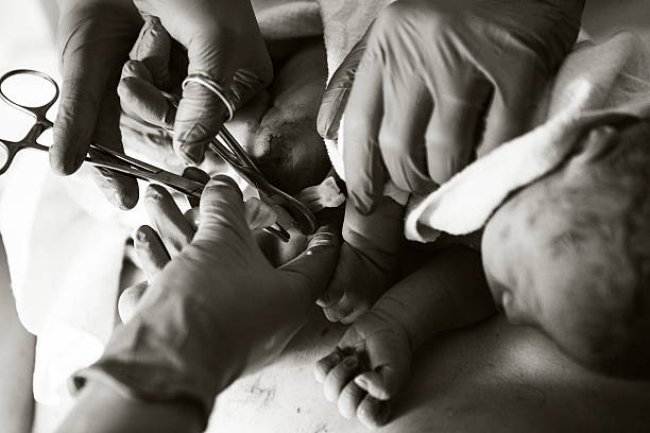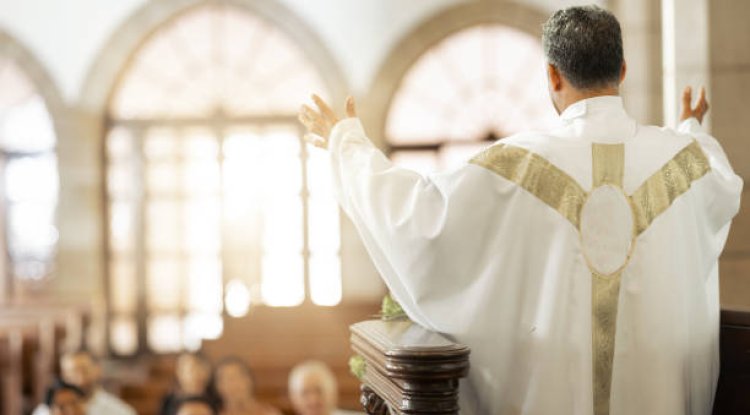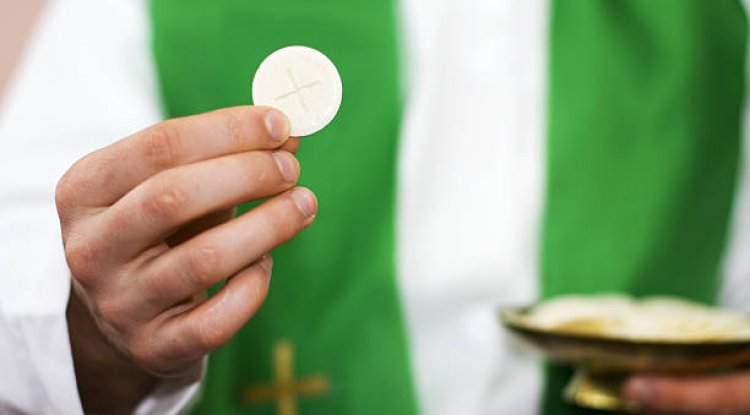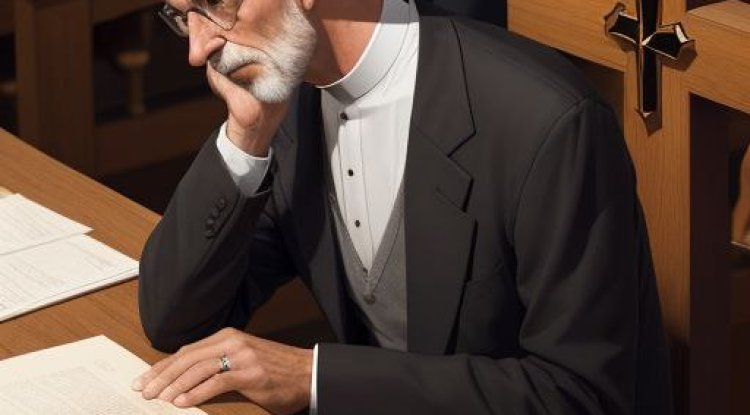THE SECOND ADVENT CANDLE: PEACE
HOMILY FOR THE SECOND SUNDAY OF ADVENT, YEAR C. Readings: Baruch 5:1-9; Psalm 126; Philippians 1:4-6.8-11 and Luke 3:1-6.

This Sunday we light the second candle of the Advent wreath, which signifies love, and is otherwise known as the Bethlehem Candle. Like the prophecy Candle, the Bethlehem Candle is purple, signifying repentance and royalty. This Candle helps us recall the preparation Mary and Joseph made before the birth of Jesus Christ, travelling from Nazareth to Bethlehem for the first population census, in order to fulfil the words of the prophet as indicated also in the readings of today.
The parents of Jesus lived in Nazareth, but God wanted His promises to be fulfilled and so used the Emperor Caesar Augustus, who issued a decree that a census be taken of the entire Roman world. This made Joseph go up from the town of Nazareth in Galilee to Judea, to Bethlehem the town of David (his ancestral town), to register with Mary who was betrothed to him and was expecting a child (Luke 2:1-7). God had earlier spoken through His prophet Micah saying, “But you O Bethlehem, though you are small among the clans of Judah, out of you will come for me one who will be ruler over Israel, whose origins are from of old, from ancient times” (Micah 5:2). In view of this, the liturgy of today calls us to reflect on God’s promise of salvation to humanity. He has seen the suffering of those who pass through exilic experience and has chosen to redeem them through His Son.
In the Gospel, Luke explains how the promise of salvation made by the prophet came true. He lists the political leaders of the regions Jesus lived and served in. Like any good historian, Luke gives a real historical framework. Pontius Pilate was also renowned for his gross insensitivity to the Jewish people and their brutal massacre in Judea. The rulers from the family of Herod the Great (Herod, Philip, and Lysanias) were known for their corruption and cruelty. He reminds us of the corruption and moral degradation of the Roman Empire, especially in the distant provinces like Judea.
It is in this context that Luke echoes the prophecy of Isaiah, of a voice crying in the wilderness, “Prepare a way for the Lord, make his paths straight. Every valley shall be filled and every mountain and hill shall be brought low… and all flesh shall see the salvation of God” (Luke 3:4-6). My experience travelling within some cities where tunnel roads pass through rocks and mountains just as a needle passes through cloths, gives me a better view of this passage, that whatever seems to be wrong with the road must be corrected. It takes an expert in engineering to construct such a road, penetrating rocks with tunnels to construct roads. There is something much more than this; it is the construction of the road to our hearts to become hearts that know how to love and forgive. The heart is where the real preparation of advent must take place. The heart is the Bethlehem, the new manger where Christ will be born on Christmas day. Even if the heart is as terrible as some of our roads in Nigerian, it can be reconstructed. Invariably, whatever will stand as obstacle for us to receive Christ at the end of this season should be removed.
As regards conversion of the heart, we will understand the first reading from the book of the prophet Baruch which says, “Take off the garment of your sorrow and affliction, O Jerusalem and put on forever the beauty of the glory from God” (Baruch 5:1). The prophecy candle of last Sunday was about blessings and restoration of Israel. In today’s first reading, the prophecy is fulfilled as the exiled Jews were returned to Jerusalem. Earlier in this book, Jerusalem is highly personified as a mother mourning her exiled children saying, “…for I have seen the captivity of my people, of my sons, and my daughters, which the Eternal hath brought upon them. For I nourished them with joy: but I sent them away with weeping and mourning” (Bar 4:9-11). Now the personified Jerusalem is asked to put off the garment of sorrow and to put on forever the beauty of the glory from God.
A change of clothing (and put on) meant a change in status, which Biblically signifies divine blessings. Joseph’s status of Old Testament is closely associated with clothing. He was stripped by his brothers (Gen 37:23), which indicates pains and sufferings and was clothed with a fine linen robe by Pharaoh (Gen 41:39-42), an indication of blessing and restoration. The prodigal son was clothed with the father’s finest robe in Luke 15:22. The prophet further emphasizes the contrast and reversal of the Israelites situation when he said, “They went on foot, led by their enemies; but God will bring them back to you, carried in glory as on a royal throne” (Baruch 5:6). Similarly, we too are clothed with the garment of beauty and glory from God on the day of our baptism and God has decreed that all the obstacles for his people’s return be removed. High mountains were an image often associated with arrogance and opposition to God, which are associated with sin. Invariably, human pride and sin must be brought down through repentance before one can return to God.
Dear friends in Christ, the liturgy of today highlights the mission of John the Baptist to prepare the way for Jesus. Similarly, Joseph and Mary had their preparations. We also, are invited to prepare the way for the Lord and make our hearts the new Bethlehem where Christ will be born.
Happy Sunday!
Fr. Ken Dogbo, OSJ
What's Your Reaction?



















